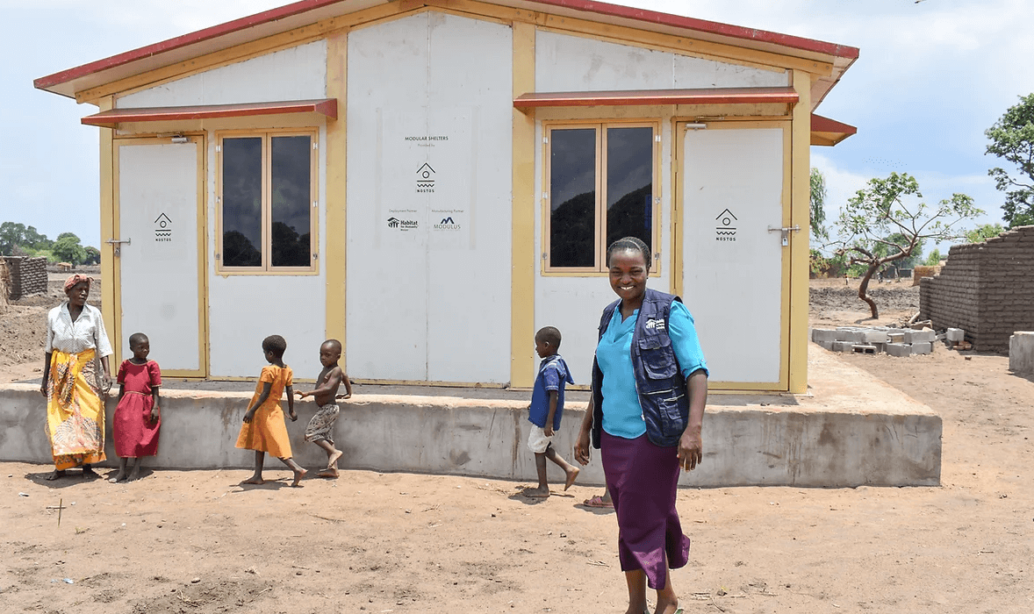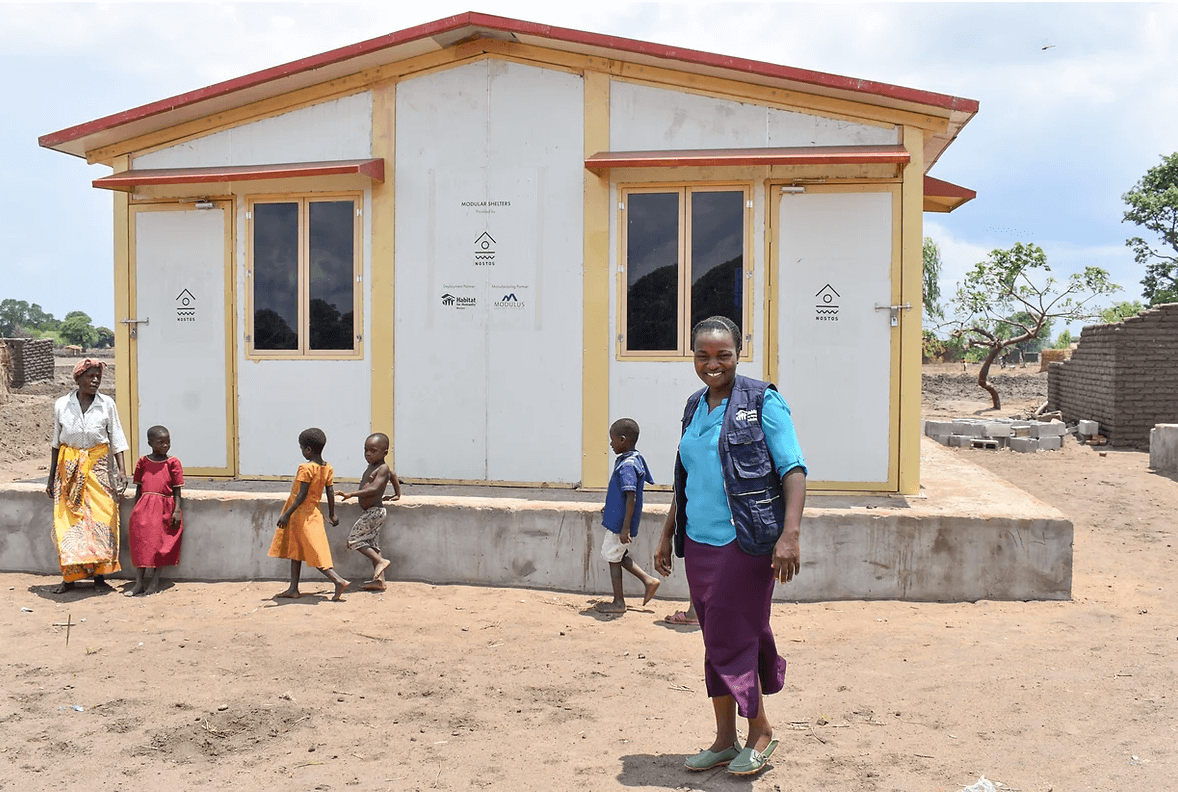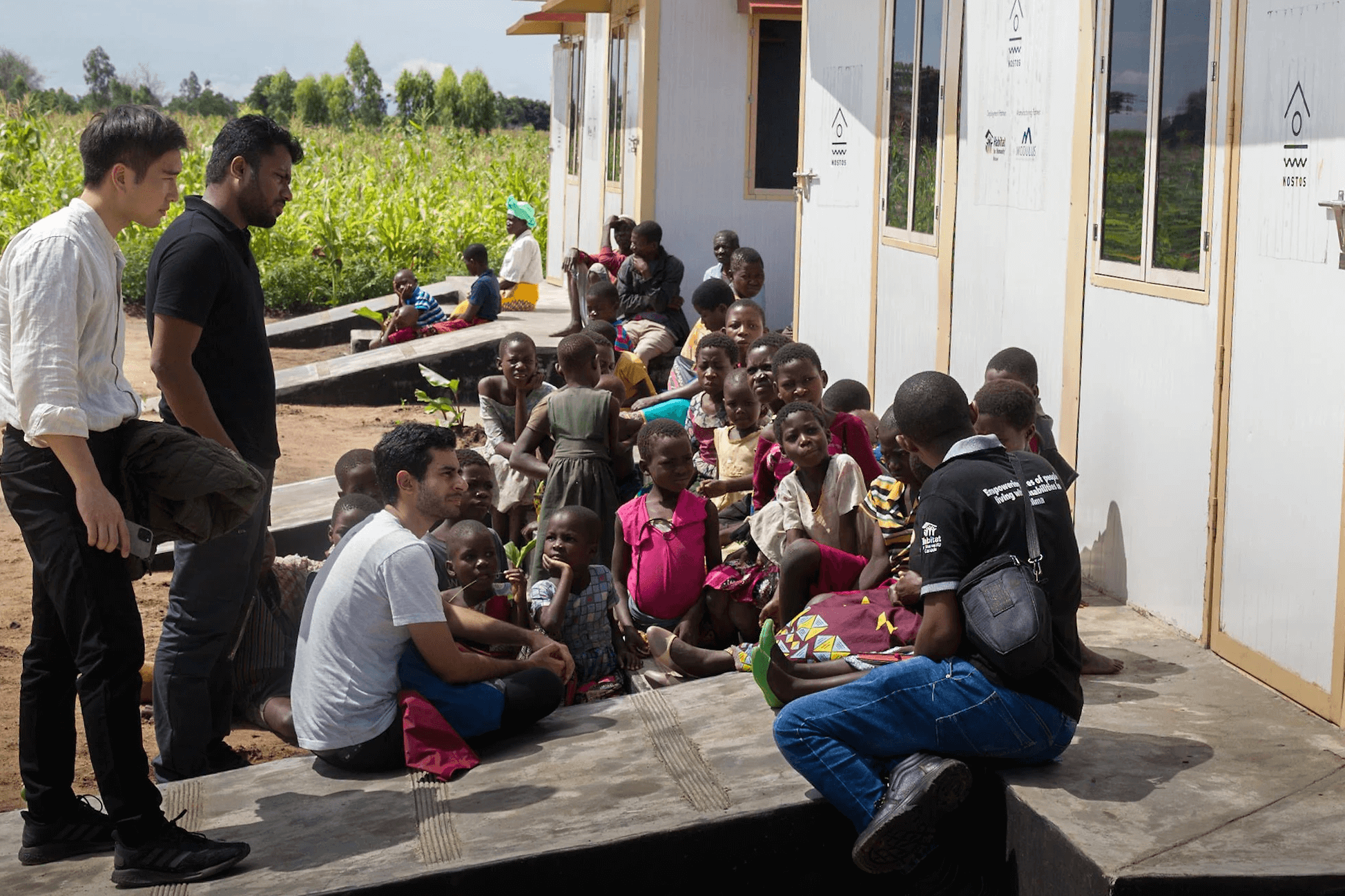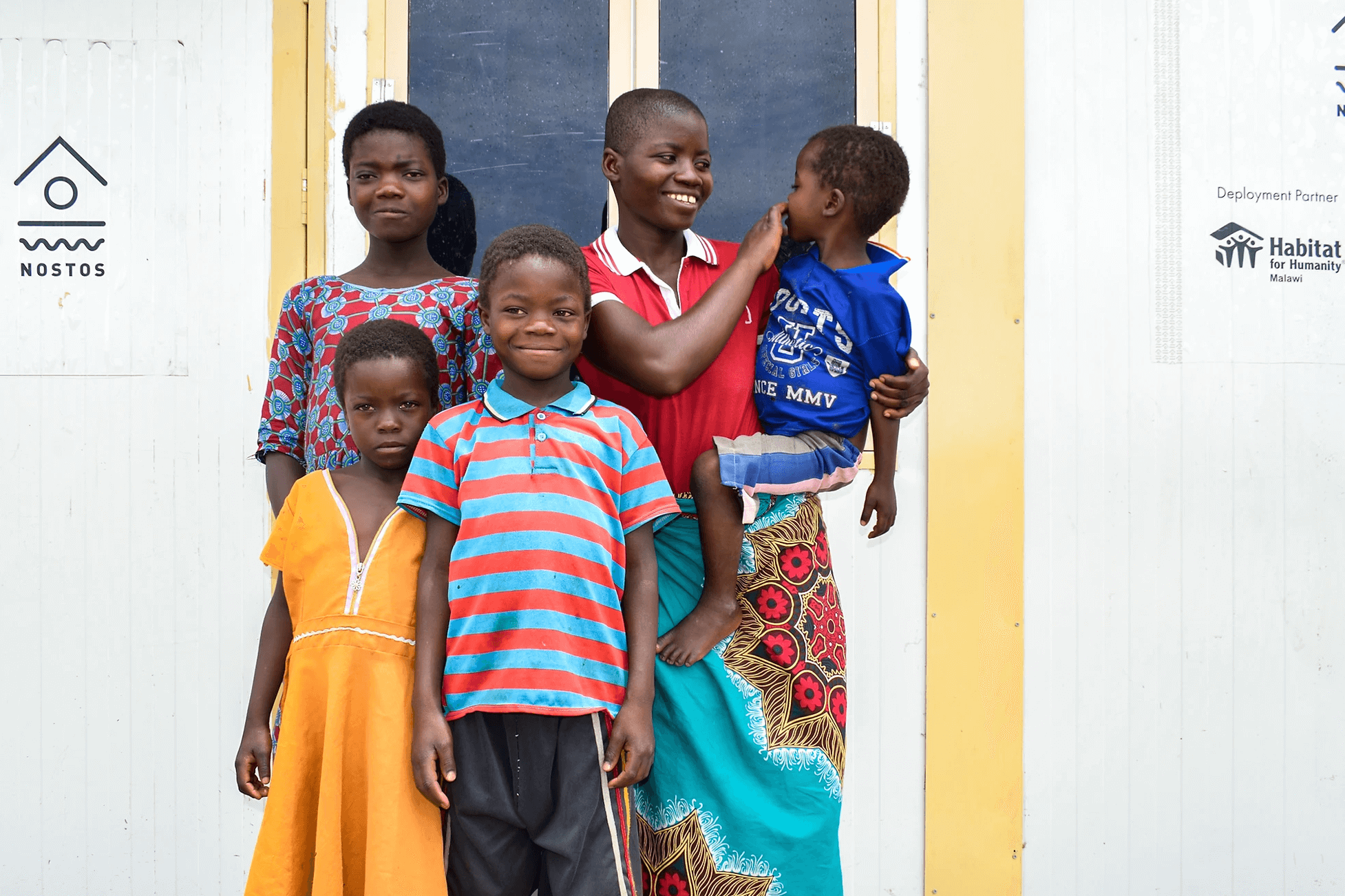
An Executive Director’s Guide: Board Confidence & Nonprofit Financials
August 2, 2023
[PODCAST] Empowering Nonprofit Boards with Diversity, Equity, Inclusion, and Belonging Training
August 5, 2023Rapidly Rehousing: A Nonprofit’s Use of Modular Homes

Rapidly Rehousing: A Nonprofit’s Use of Modular Homes
When Cyclone Gombe devastated Malawi, it left many families displaced without housing. Ethel Chamba, a single mother already struggling financially, lost her home. Unable to rebuild, she and her children lived in unstable conditions with relatives. Traditional rebuilding takes years, leaving victims vulnerable. However, Habitat for Humanity challenges this by quickly providing modular shelters. Through an innovative partnership with Nostos Homes, Habitat built a modular community in rural Malawi in just a week. Families like Ethel’s now have secure, quality housing. Rapid shelter stabilizes and supports disaster victims.
Nonprofit Hub celebrates the work of Nostos Homes while they strive to combat one of the biggest challenges of our time. Nostos Homes is a UK-based charity led by young people and provides sustainable homes for families forcibly displaced worldwide. The organization and its leadership garner extensive international recognition and support, with endorsements from various entities such as the World Bank, IFC, Goldman Sachs, HRH Prince William, Royal Commonwealth Society, and The Diana Award. The work of Nostos has also been acknowledged as a finalist for The Org Impact Awards.
Devika Narayanan is the Chief of Staff of Nostos Homes and leads strategic partnerships like these for the organization. Her creative problem-solving skills have assisted the nonprofit in its growth and success.

Habitat’s prefabricated modular construction enabled a swift, effective response. Nostos’ steel-frame, insulated-panel homes are made off-site then transported and assembled on location. This modular technique allows much faster deployment than traditional building. While brick and mortar construction takes months or years, a modular community of 8 houses can be completed in under a week. The customized, resilient units also cost half as much as comparable permanent housing. Consequently, the speed, flexibility and affordability of modular construction helped Habitat rapidly provide over 350,000 nights of shelter.

For vulnerable families, a home provides more than four walls—it also means safety, stability and dignity. After months of instability, Ethel Chamba said her modular Habitat home gave her children hope and peace of mind. Access to shelter helps restore livelihoods, health, and education. When rapidly rehoused after disasters, people can rebuild lives rather than remain displaced. Habitat’s work demonstrates modular innovation’s immense potential to address housing shortages globally. Whether displacement stems from disasters, conflicts or inequities, quickly providing quality housing is key to supporting families and communities in crisis. By using modular construction, Habitat helped victims in days instead of the usual years by moving them out of displacement. This model shows partnerships and technology can respond at scale to pressing shelter needs of vulnerable global populations.

Habitat for Humanity’s rapid rehousing of Malawian cyclone victims highlights modular construction’s life-changing potential. Innovative housing solutions can help nonprofits respond swiftly and effectively to shelter crises. This powerful model demonstrates cost-effectively scaling efforts to provide quality homes, restore stability, and rebuild lives. By challenging traditional slow housing relief, Habitat’s innovative modular technology delivers rapid results and a path forward for humanitarian organizations addressing global displacement.
Read more about this incredible initiative here.
*This featured article was originally published on nostoshomes.org.

The post Rapidly Rehousing: A Nonprofit’s Use of Modular Homes appeared first on Nonprofit Hub.
